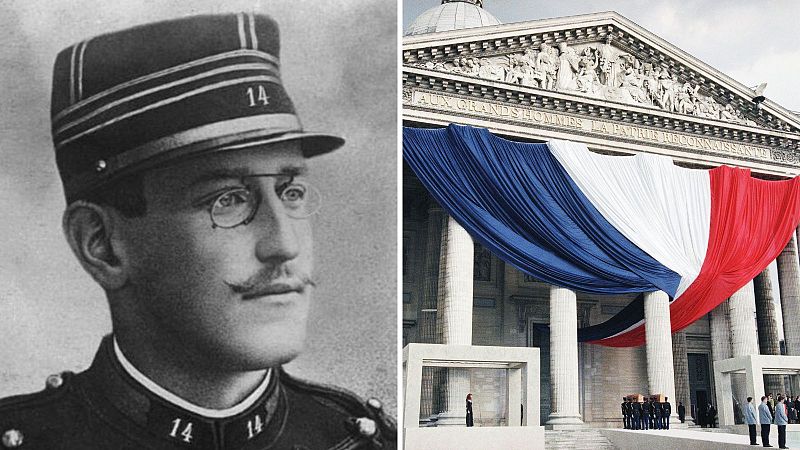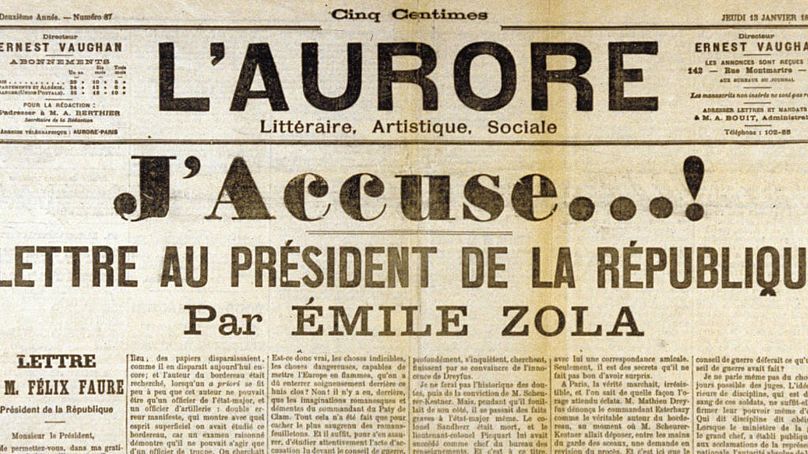
France’s National Assembly Defense Committee has unanimously approved a bill to posthumously promote Captain Alfred Dreyfus to the rank of brigadier general, marking a historic correction of the antisemitic injustice he endured.
The bill comes 90 years after Dreyfus’ death and has been described as “an important step in the history of Alfred Dreyfus and in the history of the Republic,” according to Charles Sitzenstuhl, the Ensemble pour la république (EPR) MP for Bas-Rhin and the rapporteur for the bill.
“The anti-Semitism that struck Alfred Dreyfus is not a thing of the past. Today's acts of hatred are a reminder that this fight is still relevant today,” pointed out former Prime Minister Gabriel Attal, who tabled the bill on 7 May.
The text also states that “five years of deportation and humiliation irreparably hampered (Dreyfus’) military career” and it is “indisputable that without this injustice, Alfred Dreyfus would naturally have risen to the highest ranks.”
In a statement, the French Embassy in Israel said: “The French nation is committed to justice and does not forget. It is posthumously promoting Alfred Dreyfus to brigadier general — to correct a wrong, to honor a soldier, and to affirm that antisemitism, past or present, has no place in the Republic.”

For those in need of a refresher on the Dreyfus Affair, French intelligence intercepted a memo from a French officer to a German embassy official in Paris in 1894. Suspicion fell on Dreyfus, who was tried by a military tribunal and convicted of treason. In January 1895, was stripped of his rank in a public degradation ceremony and sentenced to life imprisonment on Devil’s Island in French Guiana.
The trial was fueled by widespread antisemitism within the military and French society. A public campaign to clear Dreyfus’ name soon emerged, led by journalist Bernard Lazare.
In 1896, new intelligence chief Lt. Col. Georges Picquart discovered that the real traitor was another officer, Maj. Ferdinand Walsin Esterhazy.
Respected French novelist Émile Zola published his famous open letter, “J’accuse” (“I Accuse”), in January 1898, denouncing the military’s role in the miscarriage of justice.
In 1906, France’s highest court overturned the conviction, fully exonerating Dreyfus. He was reinstated in the army as a major and went on to serve during World War I.
Dreyfus died on 12 July 1935 at the age of 76, and the Dreyfus Affair became synonymous with the wrongful conviction of the innocent. It also remains one of France’s - and history’s - most enduring examples of institutional antisemitism.

The bill will be further debated on 2 June and if it is adopted, “it does not close the door on the strong symbol that would be the pantheonisation of Dreyfus,” according to historian Philippe Oriol, a specialist in the Dreyfus Affair – who refers to the Panthéon, the national necropolis reserved for the worship of illustrious men.
“The idea is not to include a moment in history” in the Pantheon, but “to include a man”, added Oriol.
“I can only regret that this promotion did not take place during his lifetime,” said Charles Dreyfus, grandson of Alfred Dreyfus. He told France Inter: “Most of the tributes paid to him were posthumous,” and how this gesture of reparation initiated by the parliamentarians remains a powerful symbol.
“It is important to show what antisemitism can do.”







